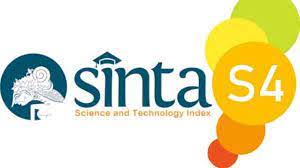Clinical Supervision Management in PAI Learning at SMP Maarif 1 Kebumen
Abstract
Efforts to develop Islamic Religious Education (PAI) learning in schools/madrasas can actually utilize the clinical supervision model. However, in general, school/madrasah principals are reluctant to carry out clinical supervision for various reasons, and subject teachers are not brave enough to propose it. This paper aims to get a brief overview of clinical supervision management in PAI learning. The research was conducted briefly at SMP Maarif 1 Kebumen. The method used is field research, with data collection techniques through interviews, observation, and documentation, and the results are in the form of qualitative descriptive narratives, and the principal is the key informant from which other informants are then developed through the snowball sampling model. The results of his research are that clinical supervision at SMP Maarif 1 Kebumen is managed using the POAC management model, namely (a)planning is carried out at the beginning of the semester which is prepared by the principal and held a meeting with the deputy heads, and then socialized to teachers through the beginning of the semester meeting, (b)organizing using the delegation model, (c)delegating of further clinical supervision from the school principal to the vice principal in the curriculum field assisted by a number of senior teachers, (d)actuating as implementation of clinical supervision is carried out starting from checking the quality of lesson plans in samples related to materials, learning resources, and learning methods, inviting teachers whose lesson plans need improvement, and carrying out clinical processes and improving the quality of lesson plans, (e)controlling is carried out through closed meetings between school principals and the deputy head of curriculum and a number of senior teachers. Furthermore, supervision of PAI learning itself is directly carried out by the school principal. Controls, evaluations and repairs are completed by discussion and friendly chat but it works. The Javanese cultural approach has a positive impact on the implementation of clinical supervision. The end of clinical supervision activities is imputing data of the supervision score into the system.
Copyright (c) 2022 Raisa Ruchama Silmi Chamidi, Agus Salim Chamidi

This work is licensed under a Creative Commons Attribution-ShareAlike 4.0 International License.
This journal provides immediate open access to its content on the principle that making research freely available to the public supports a greater global exchange of knowledge.

Komunika by http://ejournal.iainu-kebumen.ac.id/index.php/An-Nidzam/ is licensed under a Creative Commons Attribution-ShareAlike 4.0 International License
Authors who publish with this journal agree to the following terms:
- Authors retain copyright and grant the journal right of first publication with the work simultaneously licensed under a Creative Commons Attribution License that allows others to share the work with an acknowledgement of the work's authorship and initial publication in this journal.
- Authors are able to enter into separate, additional contractual arrangements for the non-exclusive distribution of the journal's published version of the work (e.g., post it to an institutional repository or publish it in a book), with an acknowledgement of its initial publication in this journal.
- Authors are permitted and encouraged to post their work online (e.g., in institutional repositories or on their website) prior to and during the submission process, as it can lead to productive exchanges, as well as earlier and greater citation of published work (See The Effect of Open Access).










1.png)


